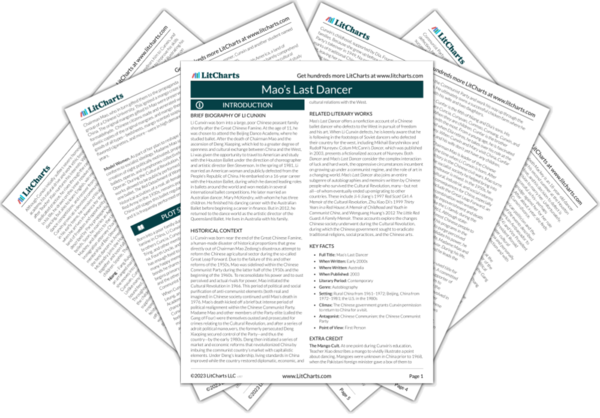AI ToolsNew
Tools to make learning and teaching easier
|
Previous
Chapter 18: The Filthy Capitalist America
|
Mao’s Last Dancer: Chapter 19: Good-bye, China Summary & Analysis |
Next
Chapter 20: Return to the Land of Freedom
|


Upgrade to unlock the analysis and theme tracking for all of Mao’s Last DancerMao’s Last Dancer!
Get LitCharts A+